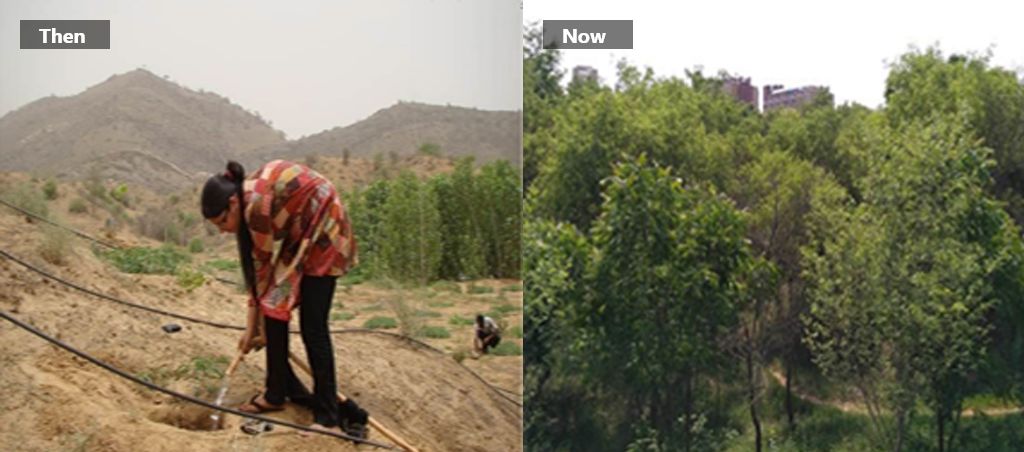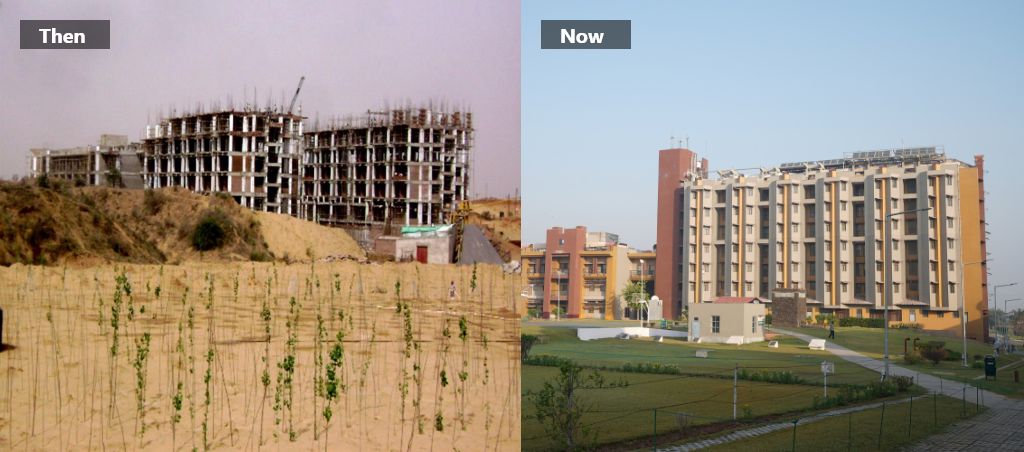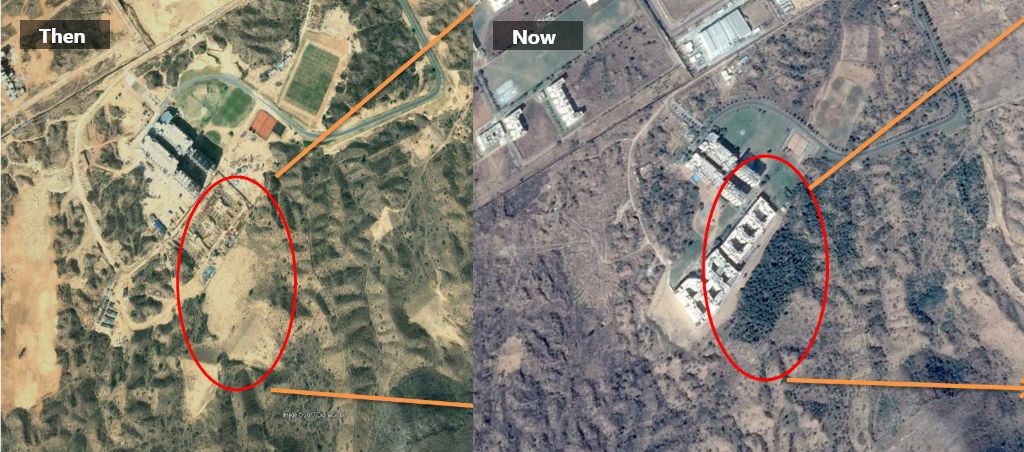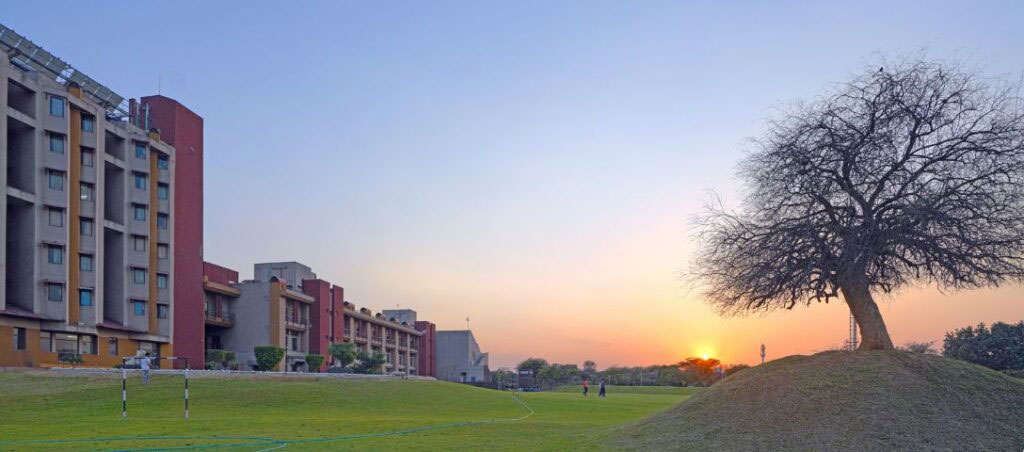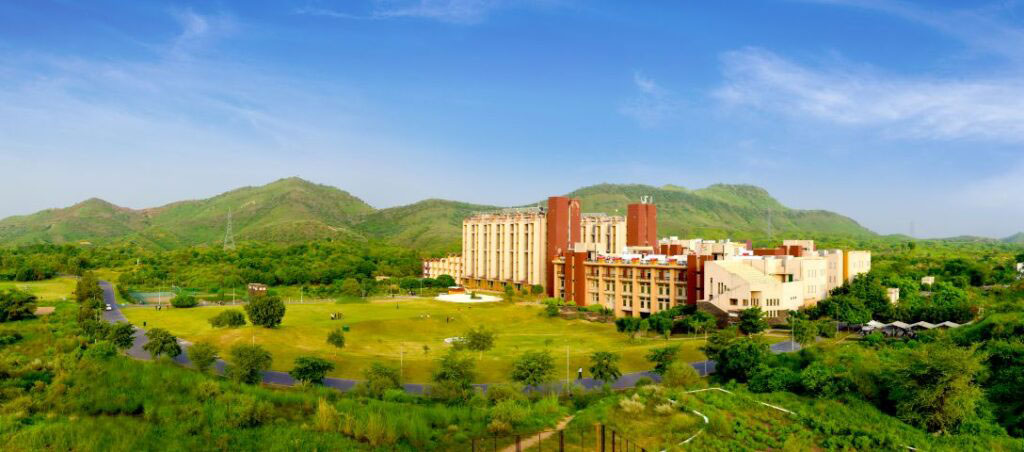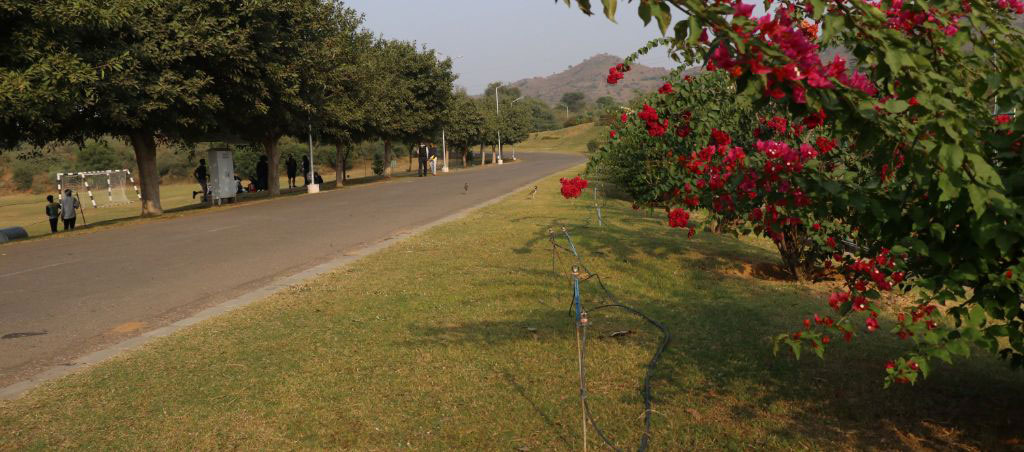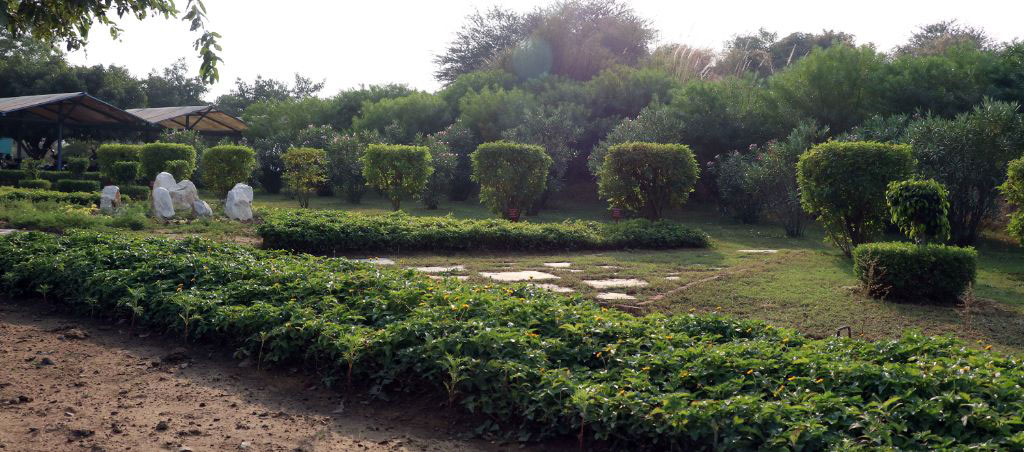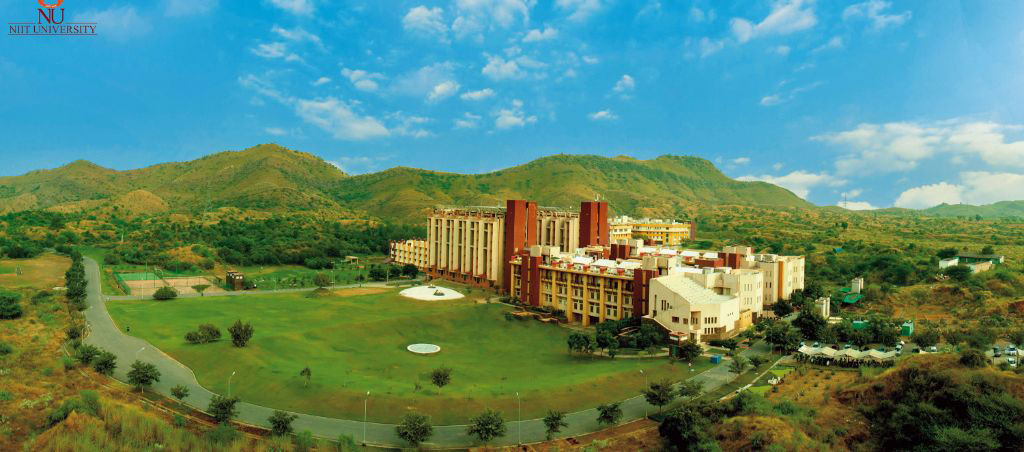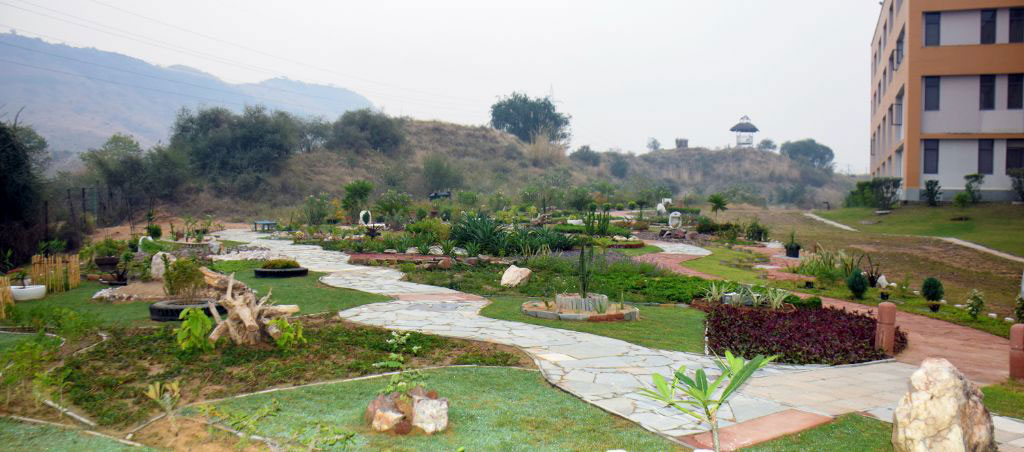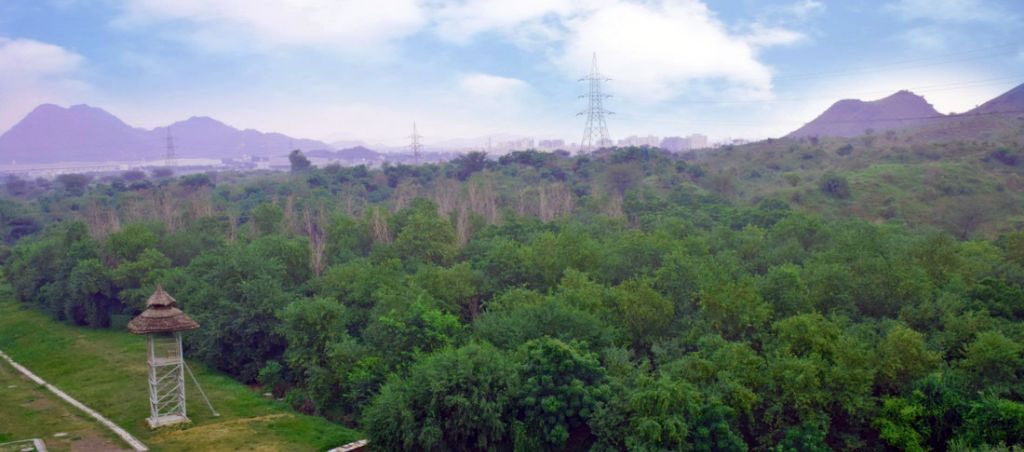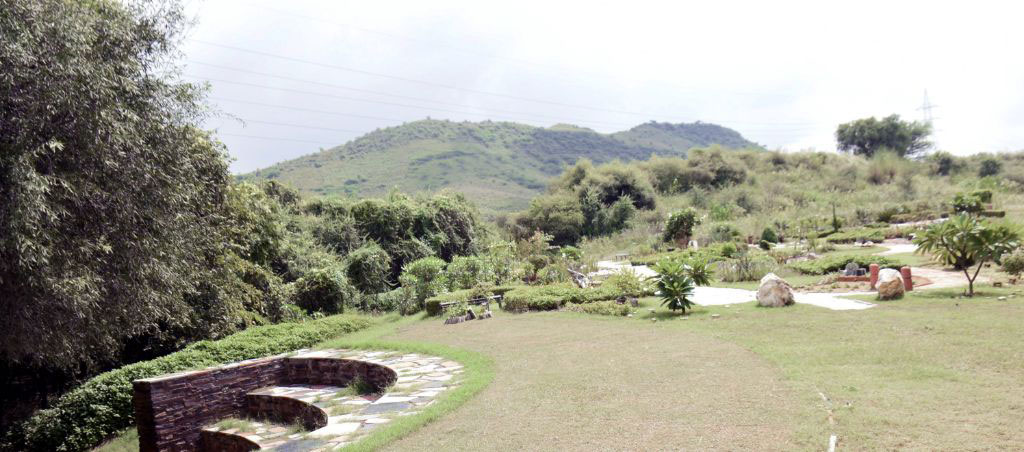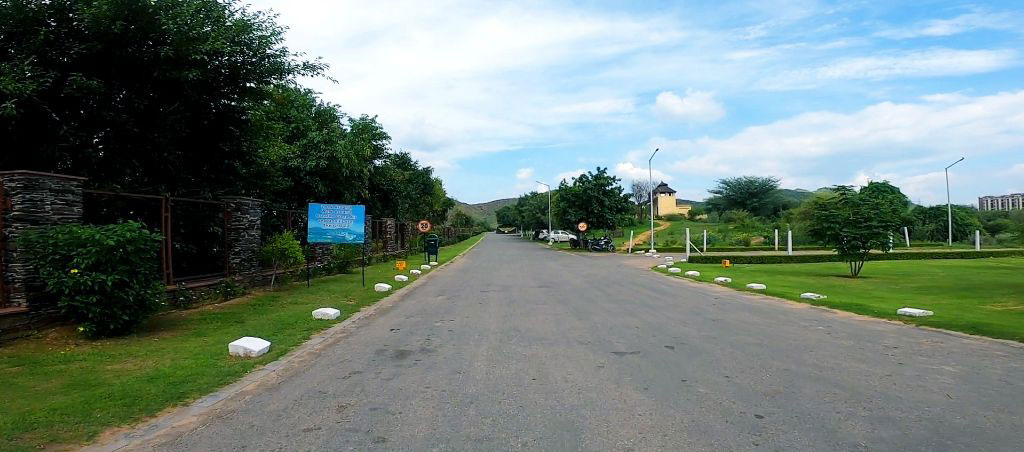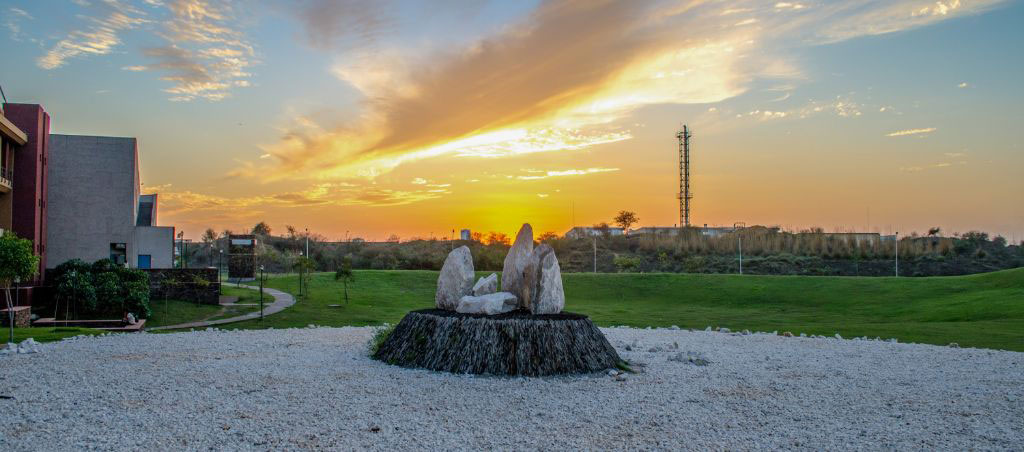Living With Nature
Living in the lap of nature
NIIT University (NU) has come a long way since our Founder, Rajendra Singh Pawar, looked around at 100 desolate acres of non-arable land. Surrounding this vast arid land on three sides were the majestic Aravalli Hills. The challenge appealed to Mr Pawar. The university he envisioned would be established in the lap of nature.
It was an ambitious plan, even audacious in its breadth and scope. But Mr Pawar was adamant that the ‘University of the Future’ would become an integral part of the land. To that end, he insisted that the architectural plan consider the dips and hills of the terrain. He was also adamant that not one truck load of earth would be taken in or out of the campus boundaries.
Partnering with a committed and competent master planner and architect, NU achieved the impossible. Buildings became an integral part of natural land contours. All the hostel rooms opened out to the glorious sight of the Aravalli Hills. A natural dip in the land metamorphosed into an amphitheatre.
It was an ambitious plan, even audacious in its breadth and scope. But Mr Pawar was adamant that the ‘University of the Future’ would become an integral part of the land. To that end, he insisted that the architectural plan consider the dips and hills of the terrain. He was also adamant that not one truck load of earth would be taken in or out of the campus boundaries.
Partnering with a committed and competent master planner and architect, NU achieved the impossible. Buildings became an integral part of natural land contours. All the hostel rooms opened out to the glorious sight of the Aravalli Hills. A natural dip in the land metamorphosed into an amphitheatre.
I’ve lived in a clean, eco-friendly township all my life, so NU feels like a second home to me. The campus with its backdrop of the Aravalis is a sight to cherish. – Nandini Bais, BTech CSE (Class of 2021)
The vision of ‘becoming one with nature’ didn’t end there. NU actively planted trees within and even outside the campus, greening over 48 hectares of the 750-acre Aravalli range adjoining the campus. When NU first began construction in 2008, the land around the university was fairly barren. The Aravalli Hills were referred to locally as ‘Kali Pahadi’ owing to color of the rocky hills. NU’s dedicated afforestation efforts under the ‘Shram Daan’ drive that included students, faculty, the local community and like-minded organisations, has resulted in the planting of over 1.5lakh trees in the deeply fissured, sandy terrain of the hills. A large number of local tree species that require minimal care were planted to sustain the ecology of the region. The hope is that in the coming years, the Aravallis will be converted into ‘Hari Pahadi’.
Tree farming was not restricted to the Aravalli Hills. NU’s walk-only campus boasts of a variety of shade trees lining the pedestrian paths. A campus nursery, established in 2010, nurtures a wide variety of local species. While the master plan was modified so a path would go around a century-old Jal Pilu tree, the NU nursery actively cultivated Jal Pilu, a native species – more than five thousand saplings of a variety referred to as ‘Sand Dune Fighter’ have been distributed locally, making it the first man-made Jal Pilu forest in the area.
Tree farming was not restricted to the Aravalli Hills. NU’s walk-only campus boasts of a variety of shade trees lining the pedestrian paths. A campus nursery, established in 2010, nurtures a wide variety of local species. While the master plan was modified so a path would go around a century-old Jal Pilu tree, the NU nursery actively cultivated Jal Pilu, a native species – more than five thousand saplings of a variety referred to as ‘Sand Dune Fighter’ have been distributed locally, making it the first man-made Jal Pilu forest in the area.
Walking barefoot on the lush ground of the campus relieved me of all tension; the cool breezes were so pleasant that I forgot all my concerns and uncertainties. It reminded me of a quote by Khalil Gibran: “Forget not that the earth delights to feel your bare feet and the winds long to play with your hair.” – Yamini Sharma, MBA ISDE
These efforts, past, current and ongoing, ensure that the NU campus is an oasis of green in this semi-arid region. NU’s enduring commitment to being custodians of Nature means that the university focuses on maintaining a sustainable campus and restoring, maintaining and replenishing the ecological balance of the surrounding areas.
